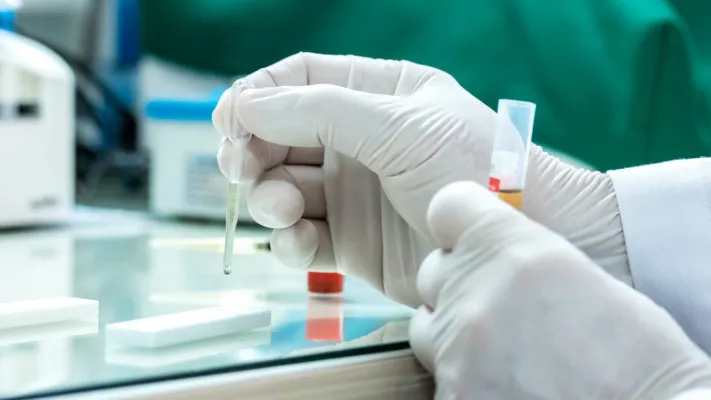Over 80% of major U.S. companies implement drug testing programs as a standard procedure for pre-employment screening and maintaining workplace safety. This widespread adoption reflects the importance placed on curbing the potential impacts of drug use in the workplace. But beyond the statistics and corporate policies, what do these tests really tell us?
Read to understand the world of drug testing, exploring its methods, implications, and the broader conversations it sparks in society.
Understanding Drug Testing
Drug testing in Marietta GA, is a technical tool used to detect the presence of drugs or their metabolites in the human body. Typically, drug testing programs are conducted through samples of urine, blood, hair, or saliva. These tests are designed to identify recent use of prescription medications, illegal drugs, and sometimes alcohol.
Common Types of Drug Tests
- Urine Testing: The most common drug testing programs used to detect recent drug use within days.
- Hair Follicle Testing: Provides a longer detection window, tracing drug use back up to 90 days.
- Blood Testing: The most accurate but invasive method used for detecting current impairment.
- Saliva Testing: It is increasingly popular for its non-invasiveness and ability to detect recent use.
Prevalence in the Workplace
- According to the 2021 National Drug-Free Workplace Alliance report, over 56% of U.S. employers require drug tests for their employees.
- A survey by the Society for Human Resource Management (SHRM) found that 57% of companies in the United States conduct drug tests on all job candidates.
Drug Testing and Unemployment Claims:
States with mandatory drug testing laws for unemployment benefits have found that less than 1% of applicants test positive. This contrasts with the national drug use rate of approximately 9% among the general population.
Goals of a Drug Testing Program
Ensuring Workplace Safety
One primary goal of drug testing programs is to maintain a safe work environment. Companies aim to mitigate the risks associated with impaired judgment and decreased performance due to drug use, which can lead to accidents and injuries, particularly in safety-sensitive industries.
Compliance with Legal and Regulatory Standards
Many industries, such as transportation and healthcare, are regulated by laws that mandate drug testing. Compliance helps companies avoid legal repercussions and maintain eligibility for government contracts and funding.
Promoting a Drug-Free Workplace
Drug testing programs also serve as a deterrent against drug use among employees, aligning with public health objectives to reduce the overall incidence of drug abuse.
The Efficacy of Drug Testing
What Can Drug Tests Detect?
Drug tests can reliably identify individuals who have recently used drugs. However, they are not foolproof. The accuracy can vary based on the type of test used, what exactly shows up on a drug test and the substances being tested for, the time elapsed since drug use, and the individual’s metabolism.
Limitations of Drug Testing
While drug tests can indicate drug presence, they do not measure impairment or addiction. Furthermore, false positives and false negatives can occur, which can unfairly impact individuals and necessitate confirmatory testing.
Ethical and Privacy Concerns
The Debate Over Employee Privacy
Drug testing raises significant privacy concerns. Critics argue that mandatory drug testing, especially in non-safety-sensitive roles, infringes on personal privacy and autonomy.
Balancing Rights and Responsibilities
Employers must balance the necessity of maintaining a safe workplace with respecting the rights of employees. This balance is crucial to ethically justified drug testing policies.
The Future of Drug Testing
As society’s attitudes towards drugs, particularly cannabis, continue to evolve, drug testing programs are under increased scrutiny. Technological advancements and legal challenges are likely to redefine the frameworks and practices of drug testing in the years to come.
Ready to Enhance Your Workplace Safety? Contact Rapid Labs Today!
Drug testing is more than just a procedural measure; it is a complex tool that intersects with legal, ethical, and social realms. Effective drug testing programs must be implemented thoughtfully, with a clear understanding of their capabilities and limitations. As drug policies and workplace cultures evolve, so too will the methodologies and implications of drug testing. This ongoing evolution will necessitate continual dialogue and adaptation to ensure that drug testing aligns with societal values and legal standards.
At Rapid Labs, we understand the critical role drug testing plays in ensuring a secure and productive work environment. Our state-of-the-art drug testing solutions are designed to provide you with fast, accurate, and reliable results, helping you maintain compliance with legal standards and promote a healthy, drug-free workplace.
Whether you’re looking to implement a new drug testing program or refine an existing one, Rapid Labs is here to support you every step of the way. Don’t let drug-related challenges compromise your workplace safety and efficiency.
Contact Rapid Labs today to discover how our comprehensive drug testing services can benefit your organization. Secure your workplace’s future—choose Rapid Labs for all your drug testing needs.

